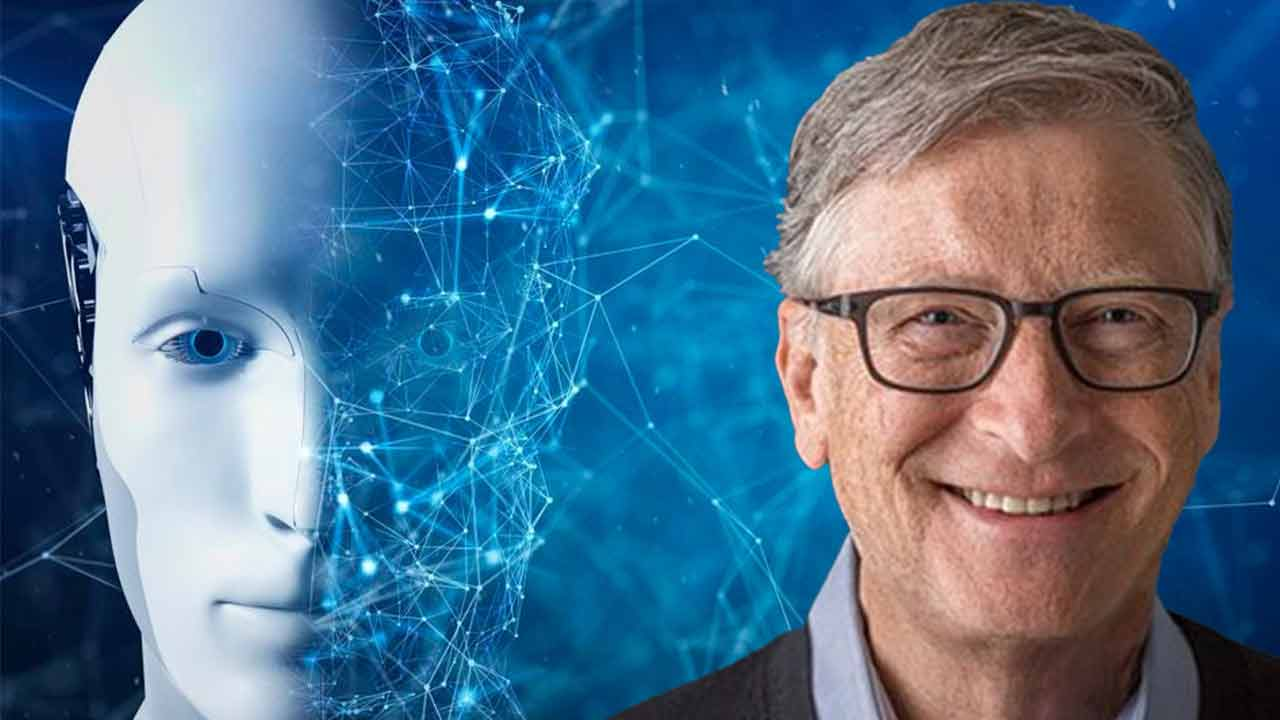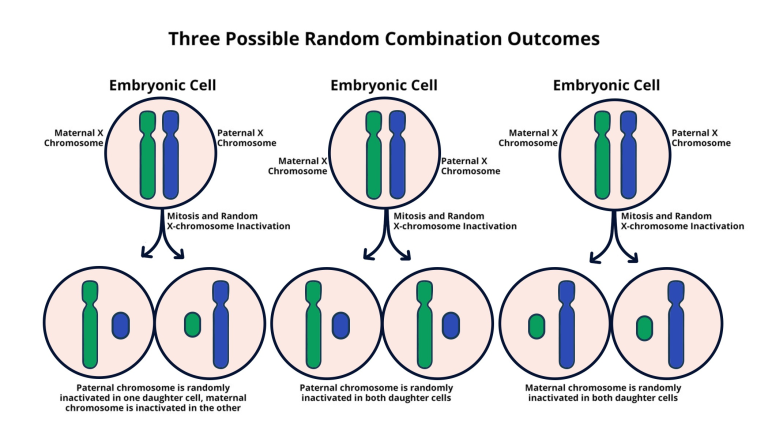In recent comments on artificial intelligence, Bill Gates acknowledged the technology’s rapid evolution, describing it as “a little bit scary.” Gates’ insights stem from a long history in tech, highlighted in his memoir, “Source Code,” where he recounts his journey from co-founding Microsoft to addressing the impact of technology in various sectors. His reflections on AI underscore the balance between innovation and caution, emphasizing the need for curiosity in education and responsible use of new tools. The Microsoft history serves as a backdrop for his discussions on AI technology, revealing the intricate relationship between digital advancements and societal change. As Gates encourages readers to grapple with these complexities, he reiterates the profound impact of technology on our lives and future generations.
Bill Gates, a towering figure in the tech industry, has recently expressed his thoughts on the future of intelligent machines, highlighting both their potential benefits and inherent risks. In his latest release, a memoir titled “Source Code,” Gates delves into his formative years at Microsoft while reflecting on the rapid advancements in AI and their implications for society. He raises important questions regarding how this groundbreaking technology might reshape fields like healthcare and education, often tying it back to his core belief in fostering curiosity and innovation. As he navigates through the history of Microsoft and the evolution of tech, Gates prompts a crucial conversation about our reliance on technology and its influence on human behavior. This exploration of AI not only resonates with his past achievements but also serves as a harbinger of the challenges and opportunities that lie ahead.
Bill Gates and the Evolution of AI Technology
In his recent memoir, “Source Code,” Bill Gates provides an insightful reflection on the rapid evolution of AI technology and its implications for society. As someone who co-founded Microsoft and has witnessed the technology sector’s transformative power firsthand, Gates expresses both optimism and caution about the future of artificial intelligence. He acknowledges the capabilities of AI to revolutionize fields such as medicine and education, offering solutions to pressing problems. However, the rapid pace of AI development raises ethical questions and concerns about its potential misuse, highlighting the need for a cautious approach to integration into daily life.
Gates’s comments are particularly relevant in today’s context where technology is becoming increasingly pervasive. In his discussions, he emphasizes the importance of maintaining a balance between innovation and responsibility. As AI systems continue to evolve, society must grapple with the challenges they pose, particularly in terms of privacy and accountability. Gates underscores that while AI has the potential to enhance productivity and improve quality of life, it is imperative to establish ethical guidelines and policies to ensure that this powerful technology serves the greater good.
Lessons from Bill Gates’ Memoir: Curiosity in Education
“Source Code” encapsulates Bill Gates’ philosophy that curiosity is the bedrock of meaningful education. Throughout his narrative, he reflects on his personal journey, highlighting how his inquisitive nature fueled his early interest in computing. Gates encourages young readers to embrace curiosity and to be willing to explore beyond the conventional boundaries of education. This philosophy is not just about academic success but also about fostering creativity and innovation, qualities that are essential in an ever-changing technological landscape.
Gates believes that education should nurture students’ natural curiosity rather than confine them to rigid curricula. He famously cites his own experience at Harvard, where initially, he felt that math was his strongest subject until he encountered peers who challenged him intellectually. This realization taught him that collaboration and learning from others are crucial aspects of growth. Gates argues for educational reforms that emphasize critical thinking and exploration, enabling students to take risks and pursue their interests in a supportive environment.
Microsoft’s Legacy and Its Impact on Technology
The founding of Microsoft marked a significant turning point in computing history, and Bill Gates’ memoir offers a detailed account of this remarkable journey. He recounts how Microsoft evolved from a small startup to a global leader in software development, driven by a vision of making technology accessible to everyone. This vision has not only shaped the landscape of software applications but has also influenced how technology interacts with daily life, from business productivity to personal communication.
Gates’ contributions extend beyond just creating software; he has had a profound impact on technology policy and corporate responsibility. He advocates for the ethical use of technology and the importance of using it as a tool for social good. His memoir reflects on the lessons learned during Microsoft’s ascent, underscoring the significance of foresight and innovation in sustaining technological growth. Today, as we navigate through an increasingly digital world, Gates’ insights into Microsoft’s legacy can inform contemporary discussions about the future of technology and its role in society.
The Role of Curiosity in Personal Development
Curiosity is a recurring theme in Gates’ memoir, where he attributes much of his success to his innate desire to learn and explore. From an early age, Gates demonstrated an eagerness to question the status quo, which fueled his passion for computer programming. This drive for knowledge led him to drop out of Harvard to pursue his vision of creating Microsoft, a decision that has profoundly shaped the technology landscape. For Gates, curiosity was not merely a trait; it was a crucial component of personal development that pushed him to innovate and adapt.
Furthermore, Gates emphasizes that cultivating curiosity in education can lead to greater creativity and problem-solving skills among students. He encourages educators to foster environments where students feel safe to explore and express their ideas without fear of failure. By prioritizing curiosity, educators can prepare students for the complexities of a rapidly changing world where adaptability and innovative thinking are paramount. Gates’ reflections underscore that the quest for knowledge remains a lifelong journey, one that can yield both personal and professional fulfillment.
Nostalgia and the Promise of Technology
During his recent talk, Gates touched on the nostalgia for the earlier days of technology, a time when innovation was driven by optimism and a shared belief in the potential of personal computing. He reminisced about the early days of Microsoft, where creating tools like Word and Excel was seen as a means to enhance productivity and creativity rather than as a source of anxiety. Gates expressed concern over the current perception of technology, where innovations are often accompanied by fears of misuse and dependence.
This shift in sentiment highlights the importance of cultivating a positive relationship with technology. Gates advocates for a return to an optimistic viewpoint, where advances in AI and digital tools are embraced for their potential to improve lives. By remembering the foundational ideals that originally drove technological progress, Gates believes that we can navigate the complexities of modern technology with a balanced perspective that emphasizes its benefits. It’s essential to remember that behind every technological advancement lies the promise of making the world a better place.
The Future of Education in the Age of AI
As AI continues to infiltrate various sectors, including education, Gates envisions a future where personalization and accessibility become the hallmarks of learning. In his memoir, he discusses the potential of AI to tailor educational experiences to individual students’ needs, helping them learn at their own pace and style. This transformation could redefine traditional classroom settings and provide opportunities for every learner to thrive, regardless of their background.
However, Gates warns that embracing AI in education must be done thoughtfully. He emphasizes the need for educators to remain integral to the learning process, ensuring that technology enhances rather than overshadows the human connection essential for effective teaching. By advocating for a balanced approach, Gates inspires a dialogue on how we can leverage AI to improve educational outcomes while nurturing the critical thinking and emotional intelligence skills necessary for students’ future success.
Bill Gates’ Vision for Global Initiatives
Bill Gates is not only recognized for his technological contributions but also for his philanthropic efforts that aim to address global challenges. In his memoir, he articulates the importance of leveraging technology to foster health, education, and agricultural developments worldwide. His work through the Bill and Melinda Gates Foundation embodies his commitment to use his resources and influence to combat major issues like poverty, disease, and lack of access to education.
Through various initiatives, Gates has demonstrated how technology can play a pivotal role in improving lives in developing nations. He highlights successful examples, such as mobile health technologies that provide medical information to remote communities or educational programs that integrate digital resources to enhance learning experiences. Gates envisions a future where technology acts as a bridge to equity, enabling every individual to access the tools they need to succeed, exemplifying the deep impact that technology can have beyond its initial confines.
Balancing Innovation with Ethical Considerations
In today’s fast-paced technological landscape, Bill Gates emphasizes the importance of ethical considerations as integral to innovation. In his memoir, he discusses how the principles of integrity and accountability must guide the development of new technologies, particularly as we integrate AI into everyday life. Gates argues that it is the responsibility of innovators and policymakers alike to ensure that advancements serve the social good and do not inadvertently exacerbate issues like inequality or privacy violations.
Gates’ perspective prompts a critical conversation about the ethical implications of technology in the modern era. He advocates for the establishment of regulations and norms that prioritize human welfare and safeguard against potential risks associated with rapid technological advancements. By fostering discussions around responsible innovation, Gates encourages a collaborative approach that engages technologists, ethicists, and communities in shaping a future where technology enhances quality of life while respecting fundamental rights.
The Changing Landscape of Communication in the Digital Age
In “Source Code,” Gates reflects on how technology, particularly through platforms developed by Microsoft, has transformed communication practices. He discusses the evolution from traditional communication methods to digital interactions that facilitate instantaneous connectivity across the globe. This shift has not only changed the way we communicate but also how we collaborate and share knowledge in an increasingly interconnected world.
However, Gates is also mindful of the challenges that come with this transformation. He expresses concern over the decline in face-to-face interactions and the potential adverse effects on community engagement and interpersonal skills. Gates encourages a balanced use of technology, advocating for periods of unplugging to foster deeper human connections while harnessing the benefits of digital communication tools. This perspective underscores the notion that while technology can enhance communication, it is essential to remain cognizant of its impact on our social fabric.
Frequently Asked Questions
What are Bill Gates’ comments on AI technology and its future impact?
Bill Gates has expressed an optimistic yet cautious view on AI technology, recognizing its potential to transform sectors like medicine and education. However, he also acknowledges that the rapid development of AI is ‘a little scary,’ highlighting concerns about its implications on society.
How does Bill Gates’ memoir, ‘Source Code,’ relate to his views on curiosity in education and AI?
In ‘Source Code,’ Bill Gates emphasizes the importance of curiosity and experimentation in education, advocating for students to take risks. His views on AI align with this theme as he believes that fostering a curious mindset can help navigate the complexities of emerging technologies.
What insights does Bill Gates provide about Microsoft history in his memoir regarding the advent of AI technology?
In ‘Source Code,’ Gates reflects on the early days of Microsoft and the evolution of technology leading up to today’s AI innovations. He highlights how foundational principles from their work on software paved the way for advancements in technology, including AI.
How does Bill Gates connect his early experiences at Harvard with his later views on technology and AI?
Bill Gates recalls his rigorous academic experiences at Harvard as pivotal in shaping his understanding of technology. These experiences influenced his later views on AI, where he advocates for a thoughtful approach to its integration into society, emphasizing the need for balance.
What does Bill Gates mean when he refers to AI technology as ‘free intelligence’ and its implications?
Gates describes ‘free intelligence’ in AI as a means to improve efficiency in various fields, such as healthcare and education. He sees its potential to alleviate shortages in these critical areas but also warns of the rapid changes AI brings, which can be intimidating.
Why does Bill Gates consider the current state of technology concerning young people an issue?
Gates raises concerns about technology’s overwhelming presence in young people’s lives. He believes that while tools like Microsoft Word were intended for productivity, today’s technology can lead to unhealthy usage patterns, necessitating parental guidance.
What role do Bill Gates’ parents play in his perspective on curiosity and technology, as mentioned in his memoir?
Gates credits his parents, particularly his achievement-oriented mother, for fostering his curiosity and allowing him to explore the burgeoning field of technology. Their support encouraged him to experiment, which he believes is crucial in harnessing the benefits of AI.
In what ways does Bill Gates think AI technology could transform education, according to his thoughts shared during recent events?
Gates envisions AI technology enhancing educational methods by providing personalized learning experiences that can cater to individual student needs. He advocates for using AI as a tool for positive changes within the education system.
How does Bill Gates view the balance between the benefits and dangers of AI technology?
Gates acknowledges the substantial benefits AI technology can bring but remains vigilant about its dangers due to its rapid advancement, advocating for a balanced approach to harness its positive potential while mitigating risks.
What message does Bill Gates hope to convey about embracing new technologies, including AI, in his memoir?
In ‘Source Code,’ Gates encourages readers to embrace new technologies like AI with curiosity and openness, suggesting that thoughtful experimentation can lead to significant advancements and societal benefits.
| Key Point | Details |
|---|---|
| Bill Gates’ Background | Gates shared his childhood experiences, including struggles with teachers and his IQ. |
| Release of ‘Source Code’ | His memoir discusses his early life, Microsoft’s founding, and the essence of curiosity. |
| Harvard Experience | Gates dropped out after two and a half years, focusing on his passion for software. |
| Reflections on Technology | He reminisced about the positive impact of earlier technologies like Microsoft Word. |
| Concerns about AI | Gates acknowledged the rapid development of AI and described it as ‘a little bit scary’. |
Summary
Bill Gates’ comments on AI reveal a blend of optimism and caution. As he engages with the topic during public forums and interviews, he articulates a vision where artificial intelligence could greatly alleviate challenges in sectors like healthcare and education. However, he acknowledges the rapid pace of development in AI technology, expressing that it can indeed be ‘a little bit scary.’ His reflections encourage a balanced approach to embracing technological advancements while remaining aware of their potential impacts on society.





